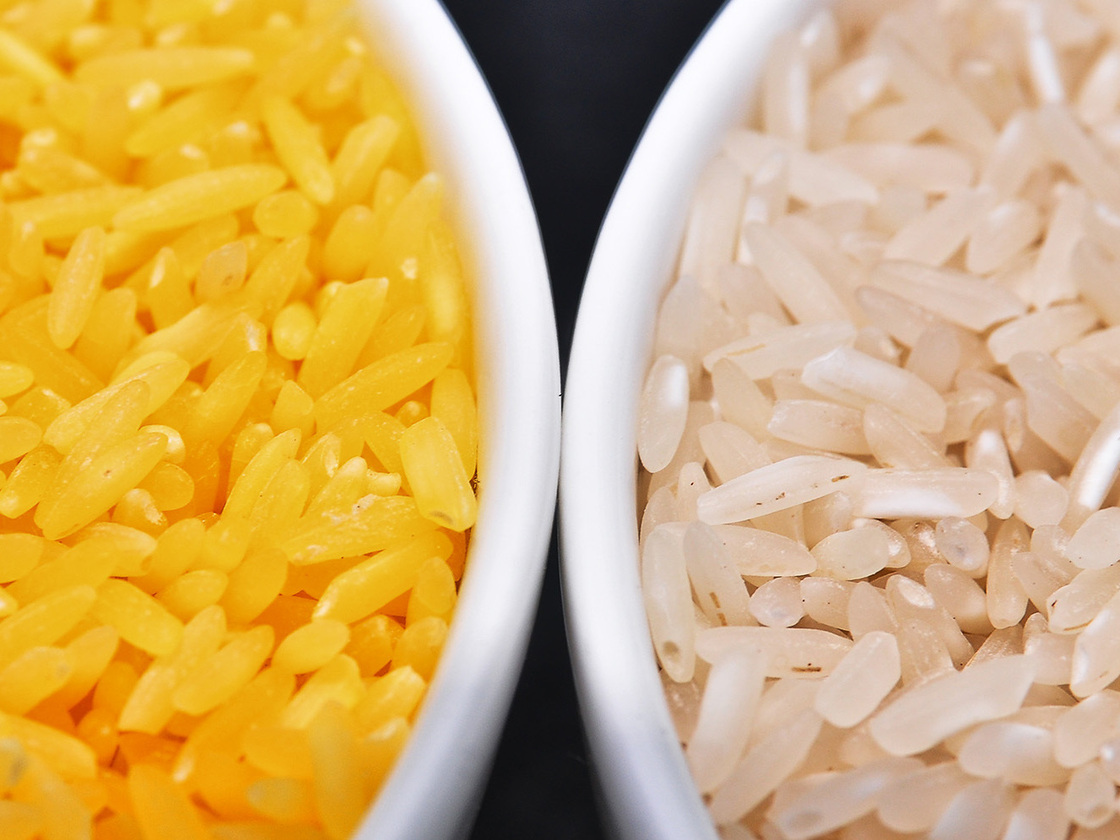Genetically modified to be enriched with beta-carotene, golden rice grains (left) are a deep yellow. At right, white rice grains.
Isagani Serrano/International Rice Research Institute Genetically modified to be enriched with beta-carotene, golden rice grains (left) are a deep yellow. At right, white rice grains.Isagani Serrano/International Rice Research Institute
Genetically modified to be enriched with beta-carotene, golden rice grains (left) are a deep yellow. At right, white rice grains.Isagani Serrano/International Rice Research Institute Tufts University announced Tuesday that one of its researchers broke ethical rules while carrying out a study of genetically modified "golden rice" in China.
According to the Tufts report, the scientific conclusions of the study remain valid. The researchers had found that a single bowl of this rice can supply more than half of a child's daily vitamin A requirement — the most convincing evidence so far that golden rice can, in fact, be a useful tool in fighting malnutrition. But when the study was published last year, anti-biotech campaigners at Greenpeace China immediately called it a scandal, accusing the research team, led by Tufts' Guangwen Tang, of feeding children a "potentially dangerous product" without informing their parents of exactly what the children were eating.
Chinese media started investigating and found evidence that Tang and her collaborators in China had cut corners when it came to informing Chinese parents and Chinese regulatory authorities about details of the study. According to a report in Nature magazine, Chinese reporters found an email from a Chinese official involved in the study in which he explained that he was dropping any mention of genetic modification in some documents presented to the children's parents because it was "too sensitive."
In December of last year, the Chinese government announced that it was punishing several China-based researchers who were involved in the study, removing them from their jobs. According to the government, the researchers didn't obtain proper approvals before carrying out the study.
Some American researchers were skeptical of the Chinese findings. They suspected that the researchers involved in this study were simply the victims of an anti-biotech backlash in China.
But Tufts, after spending more than a year carrying out its own review, now says that the study was not "conducted in full compliance with ... policy or federal regulations." According to the Tufts report, the researchers did not adequately explain the nature of golden rice and made some changes in the study without getting approval from the committee at Tufts that is supposed to review all research involving human subjects.
Guangwen Tang will be banned from conducting research on human subjects for two years. For two years after that, any research that she conducts will be under the direct supervision of another investigator.
No comments:
Post a Comment